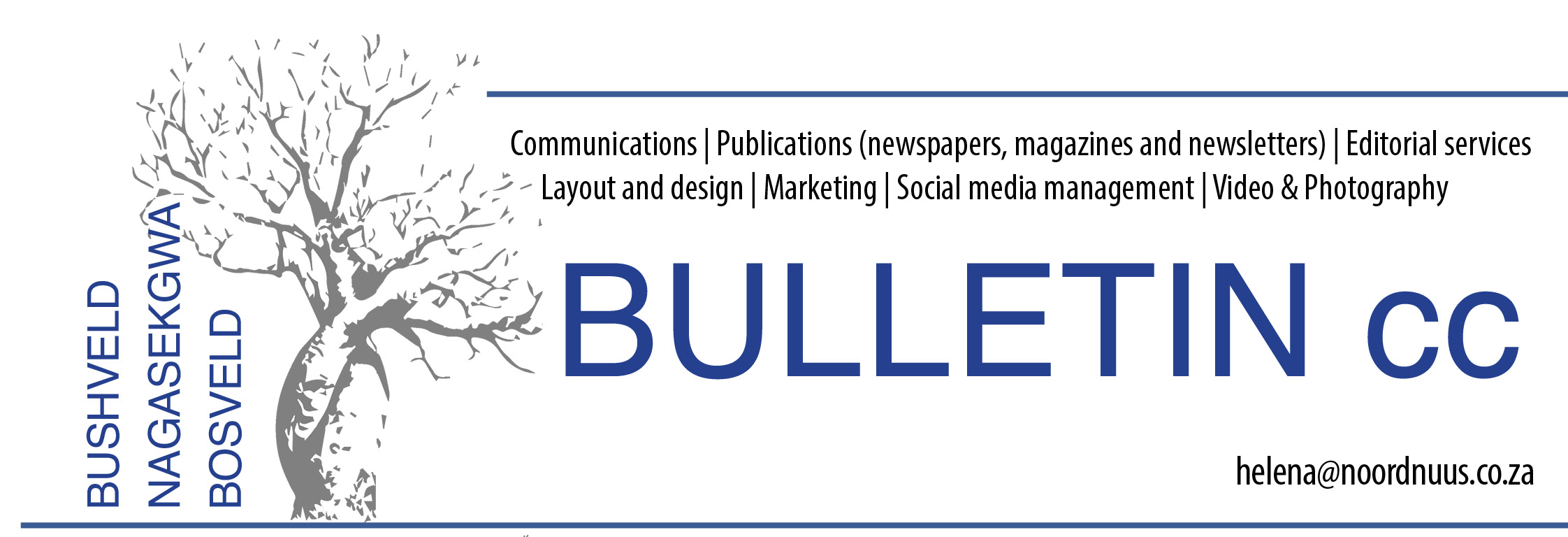Marapong: water crisis continues
~Investigating the water situation in Marapong, one thing became abundantly clear – many residents are afraid to speak up out out of fear of victimisation. One such resident claims that she does not have water for about two hours every day: “It is very difficult to live in these conditions,” she said, “sometimes we don't even have enough water to flush our toilets.”
Another resident of Extension 4 in Marapong says that he has been living in his house since 2009 and in that time he has never had any running water. “I have to go to the informal houses in Extension 1 if I want water,” he explained. “Sometimes I have to collect two 50 litre cans full of water a day.” Ludwig Masipa, also from Extension 4, says he hasn’t had water for almost eight years and has spoken to his ward councillor and the municipality about the problem in the past.
“Every five years the ANC and DA want to recruit members and then they come to our houses to talk to us, but we never receive any service despite all their promises,” Ludwig said. He adds that there are four people living in his house of which two are small children and when they need water to flush their toilet, bath, cook or even to drink, they have to take a wheelbarrow and collect water in containers from other areas in Marapong.
One elderly woman, Pauline Gupe, said that the problem is especially bad when it rains. She has to use a long-drop toilet and when it rains all the sewage pushes up to the top. She uses a big municipal rubbish can to collect water to use in the toilet and for cleaning; drinking water is collected on a daily basis in big containers.
The DA councillor living in the area, Stephen Manamela, said he is aware of the problem. “I have taken the matter up with the municipality in the past,” Manamela said, “It is unthinkable that people are still living in these conditions after so many years.”
The ANC councillor for the area, William Motlokwa, said the problem has been receiving attention from the municipality. “We are in the process of erecting water containers in the area to assist the residents,” he said. “The municipality is focusing on getting a workable solution for the problem.”
Residents are, however, adamant that they don’t want water containers, they want running water. “We have formal houses with toilets and all the pipes are in working order. Why can’t we get running water?” Extension 4 resident, Hendrik Motshehoa, said asking why the municipality charges resident for water before it is connected: “How can I pay for something I never had?”
The water problem in Marapong is a bigger issue than most people realise. One of the major issues standing in the way of Lephalale’s development is the fact that there just isn’t enough water.
Bigger picture
Lephalale was identified as a coal-mining and petrochemical cluster by government and the area’s 2035 local economic development plan includes growing the number of power stations from one to possibly five and the amount of coal mined from 16-million tons to 100-million tons. The area boasts 40% of SA’s coal reserves and the town’s population has exploded due to the construction of Eskom’s Medupi plant.
According to a question asked in parliament, published in the National Assembly Internal Question Paper No. 5, on 6 March 2014, the minister of water and sanitation, Nomvula Mokonyane, indicated that water will be transferred from the Crocodile river west to Lephalale and that the water needs and entitlements of users, including farmers in the Crocodile river west catchment have been fully accounted for in assessing the availability of water for transfer and that the funding has been obtained to start with the the pipeline for transfer.
The municipality has already engaged several stake holders as well as the department of co-operative governance, human settlements and traditional affairs (Coghsta) and the department of water and sanitation to secure funding for the project. As an intermediate solution the Lephalale municipality will work on in collaboration with the department of water and sanitation to drill five boreholes in the area.
Municipality responds
According to Lephalale municipality, an investigation into the shortage of water supply in Marapong found the demand for water is much higher than previously anticipated.
The area is overpopulated as more that 80% of the houses are doubling as rental facilities, housing 15 or more people in a house suited for 4-6 people. It is also estimated that only 16% of water users pay their accounts on a regular basis. Illegal connections also make it difficult for the municipality to establish water needs in the area. The demand is so great that reservoirs continuously run dry. The municipality is calling on residents to use water sparingly, while they are working to find a solution to this pressing issue.
Residents in Extension 4 live further away from the water reservoirs and are sometimes without water while residents in Extension 1, who live closer to the reservoirs, have water. This is a logistical concern. The municipality believe that the installation of water tanks will contribute positively to addressing the situation.
The municipality has also appointed a service provider who will erect the 22 x 10 000L water tanks, following a decision by council to mitigate water challenges in Marapong. They will meet with councillors to identify the areas where the water tanks will be erected this week and the contractor will be on site the following week. These tanks will regularly be refilled with potable water.
All informal settlements in the Marapong vicinity (around 7 000 people) will benefit from this new system according to the municipality.












0 Comments